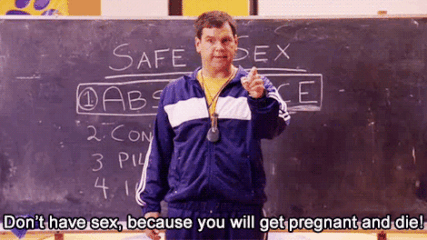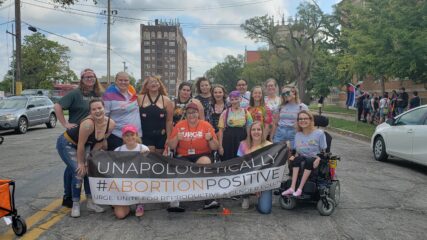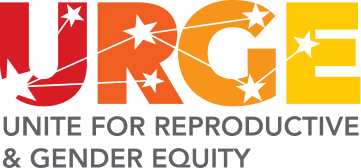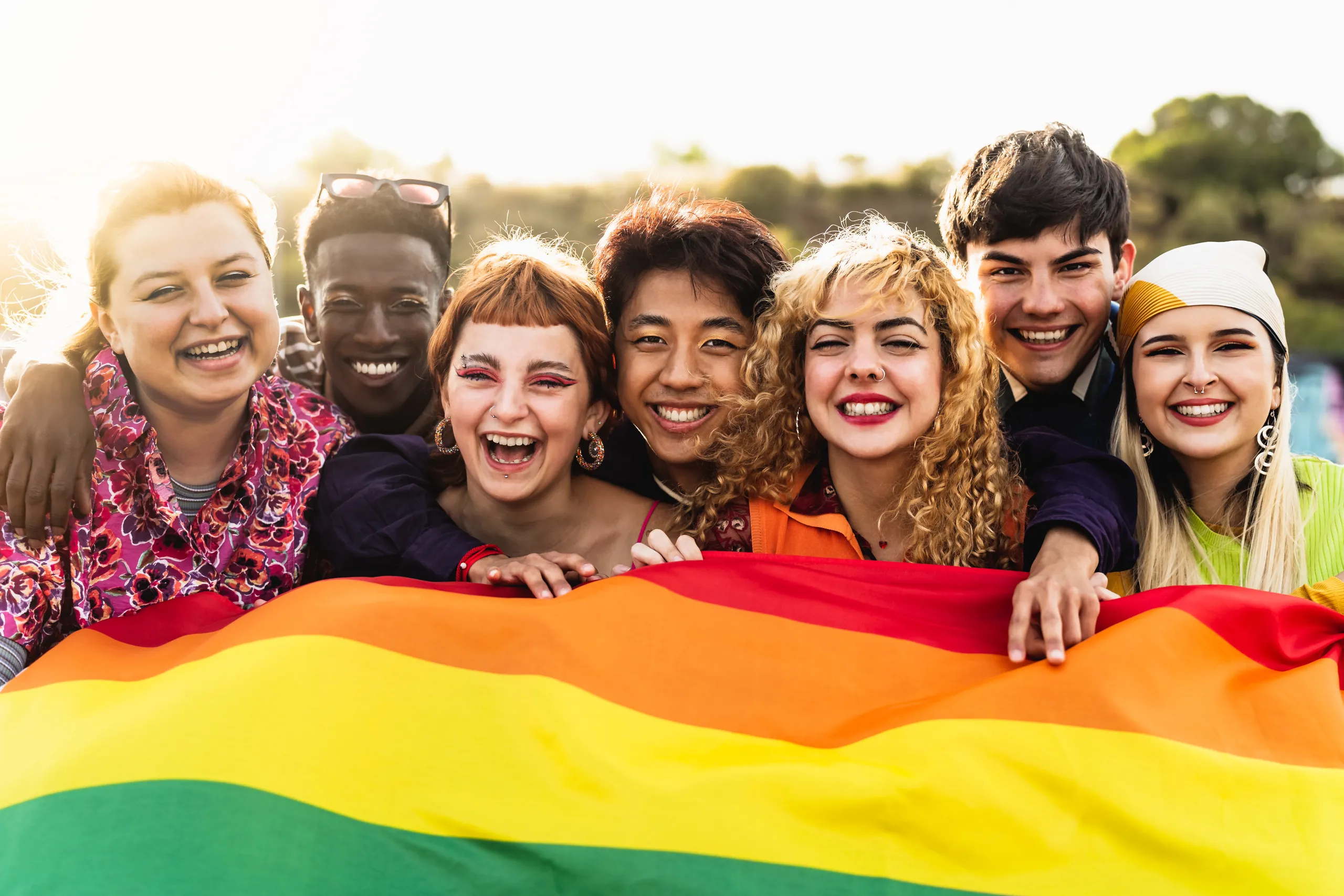
Em-URGE-ing Voices
Your urgent thoughts, urging action.

Let's not fetishize East Asian women this Halloween

The Supreme Court Doesn't Get to Rule on Our Humanity

Dealing With Activist Burnout
15 Ways You Are Privileged as a Cis Person

Having Pride in Wichita
White supremacy is on your campus. What next?

San Antonio’s Economic Segregation Was and Still Is Intentional

Let’s not forget about Anita Hill when we think of Christine Blasey Ford
You're Corporate Feminism. I'm Reproductive Justice. We not the same, sis.
For the past 3 weeks, I’ve been gaining skills in tech after spending the last 3 years gaining experience in reproductive justice. The latter is a field where most people involved actively work to dismantle white supremacist, sexist, ethnocentric, heteronormative, cisnormative, and capitalistic notions of professionalism. The former is a profession that actively perpetuates this brand of professionalism, despite claims from many tech CEOs that they are “disrupting” it–[whisper] they’re not.
This is not to say that reproductive justice as a profession is immune to harm or the abuses of capitalism, but we tend to be more aware of it.
In my experience with reproductive justice, we’re asked to bring our full selves to work. I was once told as a volunteer for Feminist Women’s Health Center that I could wear what I want when talking to legislators at the capitol because notions of “professional dress” perpetuated white supremacy.
In preparation for a possible career expansion into tech (expansion and not change because I do not plan on leaving RJ), I have been nervous about the prospects of working with men. I haven’t worked with men in 3 years and have been working in a field that is comprised mostly of women, trans people, and gender-nonconforming folks. The last time I worked with men, I experienced sexual harassment and bullying as a result of toxic masculinity.
What I didn’t anticipate is what it would be like to work with women who have adapted traits of toxic masculinity to survive. These traits include being socially dominant, bullying, and intimidation among other things. These things, however, should not be confused with masculinity in general.
My community members in Atlanta have talked about how masculine of center queer women and the like, as a way of asserting their masculinity, have abused femmes in their romantic relationship. Some even go as far as to perpetuate the belief that if femmes only dated each other, this would solve issues of intimate partner violence (a femme for femme campaign if you will).
But through my experience in dating and my experience in an all-women boot camp, I have learned that toxic masculinity and mysogyny don’t have a particular look. People who utilize toxic masculinity for their gain have a myriad of reasons for doing so.
For this piece, I’d like to think about books like Lean In and Nice Girls Don’t Get the Corner Office orany career advice piece for women in publications like Forbes, The Havard Business Review or Entrepreneur Magazine. Many of these works include the advice that goes as follows: “don’t do X at work, because women do it.”
“Don’t say sorry because women say sorry too much.” “Ask for more money because women don’t ask for money.” “Apply for jobs you don’t qualify for because women don’t apply to jobs they are not qualified for and men do.”
I’m paraphrasing and only included 3 examples, but if you conduct a quick Google search, you’ll find a plethora of similar articles. They all suggest to women that the gender pay gap is essentially their fault and if they stopped taking on stereotypically feminine traits they would have a better experience in the workplace. In Nice Girls Don’t Get the Corner Office, the author suggests that women don’t advance in their careers because of common mistakes such as baking cookies for the office or signing up for the party planning committee. Why are baking cookies and planning parties bad? And why should a woman be punished for doing something nice for her colleagues? (Although she shouldn’t be expected to do these things either.)
Coming from a reproductive justice background, I have had trouble adjusting to this corporate feminist approach.
While economic justice is an aspect of reproductive justice, the RJ lens does not look at the gender pay gap through this myopic, narcissistic, and covertly anti-union lens like corporate feminism (which I would argue is an extension of late stage capitalism). Reproductive justice advocates tend to take on systems by changing policy and transforming communities.
For example, in 2017, Representative Park Cannon (GA, D, 58) introduced a bill titled Georgia Pregnant Workers Fairness Act in the Georgia General Assembly that, if passed, would’ve allow pregnant workers better working conditions such as the ability to go on bathroom breaks whenever they need. (I think it’s sad that we’re asking for so little and yet Republican legislators still said that this bill was “anti-business.” But that’s a blog post for another day.)
Atlanta Jobs with Justice, an economic justice organization that partners with other reproductive justice organizations in Atlanta, has worked to increase the minimum wage to $15 per hour.
The Reproductive and Economic Justice movements also work to destigmatize economic sectors that not only are criminalized but that often incluce many cis and trans women, trans people, and gender-nonconforming folks. Often as a result of racialized gender discrimination we experience in the formal sector. For example, a trans woman I often see in activist spaces in Atlanta was studying early childhood education in college but was told by parents that they did not want their children being cared for by a [slur redacted], so she had to seek sex work as a way to survive. Stories like this are not uncommon. Additionally, black trans sex workers often experience various forms violence at the hands of police.
Because of this stigma and violence that sex workers experience, URGE at University of Houston is working on sex worker rights campaign to reduce sex worker stigma and repeal legislation that makes sex work difficult and unsafe. URGE Atlanta City Activist Network is also currently in the beginning stages of a sex worker rights campaign.
Misogyny does not only take shape by forcing women into strict and binary roles. It can also mean devaluing stereotypical feminine traits such as sensitivity or kindness and deeming them as signs of weakness. It also rewards traits of toxic masculinity such as bullying. Capitalism does this.
Sensitivity can be a strength. Gender discrimination can also mean ignoring the structural issues that perpetuate economic inequity that trans and cis women and gender nonconforming people experience. If we want to make the world more equitable, let’s not ask women and those who display feminine traits to actively change valuable aspects of their personality to generate fair pay. Let’s dismantle the systems that create this inequity in the first place. Reproductive justice works to dismantle these oppressive systems and corporate feminism, which is just capitalism in a cute pants suit, does not.

